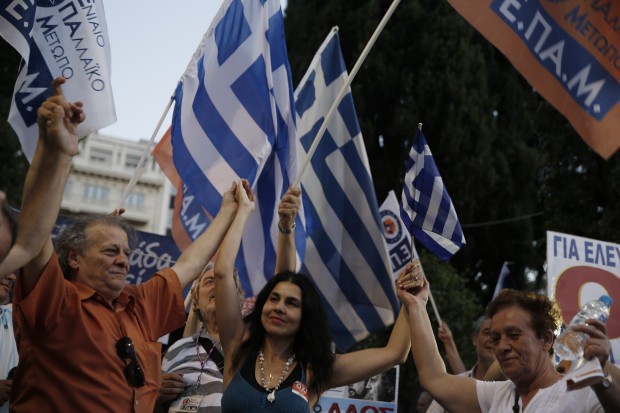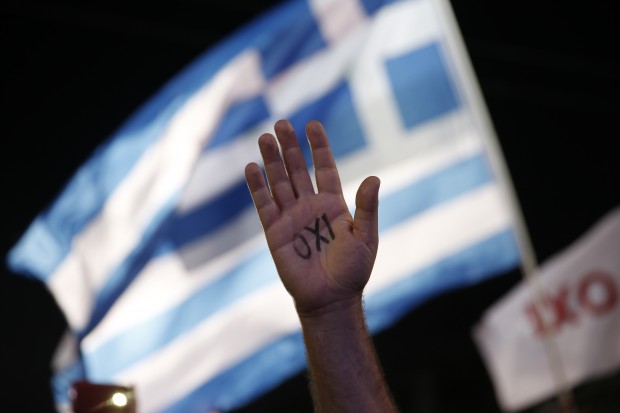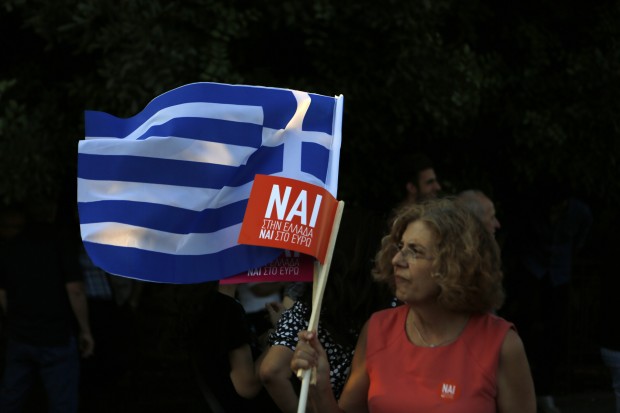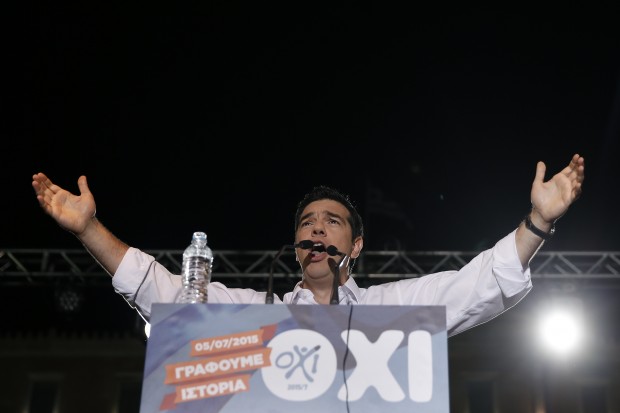
The European Union is facing a huge crisis after Greece voted decisively against accepting the terms of its Eurozone bail-out deal.
Early results suggested that around 61 per cent of Greeks had voted to reject the deal, compared to just 39 per cent in favor. The scale of the No vote took European leaders by surprise, and sent shockwaves across Europe with financial markets braced for their worst period of turmoil since the height of the Eurozone crisis three years ago. German Chancellor Angela Merkel spoke to Alexis Tsipras, the Greek prime minister, and is due to meet the French President, Francois Hollande.
EU leaders have said that a “No” vote would see Greece out of the Eurozone, resulting in a blow to European political and financial integration.
The vote was hailed as a huge symbolic victory by backers of Greece’s ruling Syriza party.
David Cameron and George Osborne, the Chancellor, will hold an emergency meeting to discuss how to deal with the Greek crisis and make sure that Britain’s economic recovery is not adversely affected.
The Prime Minister is expected to attend a summit meeting of EU leaders in Brussels today, Tuesday 7th July, as they discuss how to prevent Greece’s possible exit from the Eurozone.
Regular meetings have been recently held to ensure protection of British expatriates in Greece and possible steps to be taken if Greece opts out.
In Athens, celebrations abounded in front of the parliament in Syntagma Square following the result, with “No” campaigners blowing whistles and waving flags.
EU leaders have clarified that a “No” vote would not be interpreted as a mandate for better bail-out conditions, but a message that Greece no longer wanted to be part of the Eurozone.
The country’s banks, which are almost empty already, will collapse unless the European Central Bank agrees to extend an emergency financial lifeline. But many ECB officials are reluctant about this, considering the country is now effectively insolvent.
While the Greek finance minister, Yanis Varoufakis, said that a deal could be in place within 24 hours, EU officials said that prospects were far from clear.
“Now one has to ask the question whether Greece would not be better off outside the euro zone,” said Hans Michelbach, a German politician allied to the Chancellor, Angela Merkel. “Unfortunately, Greece has chosen a path of isolation.”
He said the “No” vote provided no further justification for an easing of Greece’s bail-out conditions, a point backed by senior German business leaders last night.
The landmark vote marked the culmination of the increasingly bitter five-year stand-off between Greece and the demands of creditors in the Eurozone and the IMF.
For those Greeks who support the Left-wing Syriza government, the vote is a symbolic victory, even if does mean leaving the Eurozone.
For Yes voters, it is a disaster, which would drag Greece into an even harsher economic wilderness than before.
A Greek political analyst, Ioannis Michalatos said, “Greece has decided emotionally, not logically, I am worried that our social fabric will disintegrate.”







